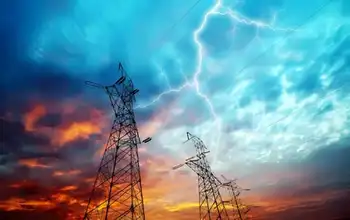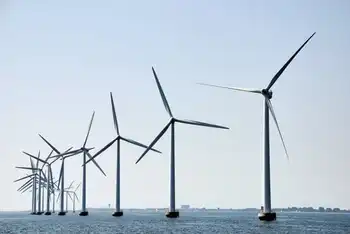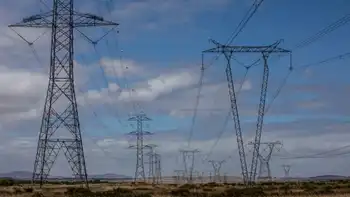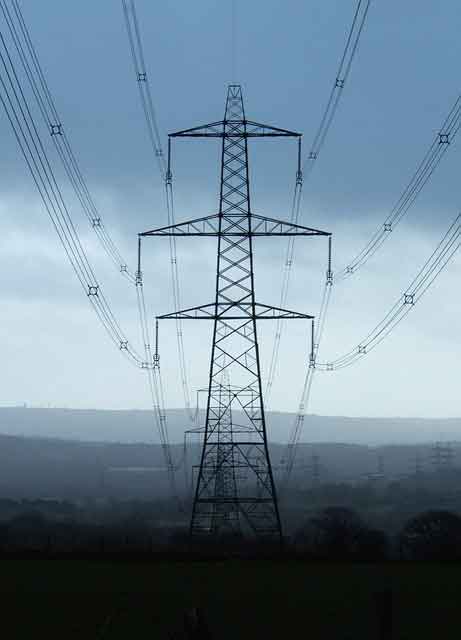U.S. needs less energy from Canada
By Vancouver Sun
CSA Z463 Electrical Maintenance
Our customized live online or in‑person group training can be delivered to your staff at your location.

- Live Online
- 6 hours Instructor-led
- Group Training Available
The U.S. Energy Information Administration says in its 2011 outlook report that the U.S. is becoming significantly more self-sufficient for energy — including natural gas, electricity, and oil.
The EIA projects that imports will account for 18 per cent of U.S. net domestic energy consumption by 2035 compared with 29 per cent in 2007.
Imports accounted for 24 per cent of domestic consumption in 2009, reflecting lower energy demand because of the global economic recession.
British Columbia has large potential gas and renewable power resources, but the EIA sees emerging U.S. domestic resources meeting a greater portion of future U.S. demand growth.
That includes increased use of domestically produced biofuels, demand reductions resulting from new energy efficiency standards, and rising fuel prices that modify consumption.
"Rising fuel prices also spur domestic energy production across all fuels, particularly natural gas from plentiful shale gas resources, and temper the growth of energy imports," the EIA says.
Natural gas will play an increasing role in electricity generation, supplanting coal, which presents an opportunity for gas producers in B.C. and elsewhere to expand production to feed into a larger market.
However, the EIA has dramatically increased its projections for domestic natural gas supply from shale deposits.
Last year it suggested there were 347 trillion cubic feet of unproved recoverable reserves. This year, as a result of additional drilling data in both existing and new shale gas plays, the EIA estimates those reserves at 827 trillion cubic feet.
The administration has also revised long-term gas price projections to a level that suggests large volumes of gas can be produced at less than $7 per unit — less than half of the peak price four years ago.
Lower long-term North American gas prices mean reduced royalty revenue for B.C. on gas produced in this province.
Electricity trade between Canada and the U.S., which generates net trade revenue for BC Hydro, is expected to drop almost 14 per cent for high value firm power between 2011 and 2035 — despite U.S. electricity demand growth of around 20 per cent during that time.
That projection would appear to diminish B.C.'s aspiration to work with independent power producers to develop a robust renewable power export sector.
In a letter to clients, emissions policy analyst Aldyen Donnelly said the administration's long range forecast shows demand for coal for electricity will grow 30 per cent from 2009 levels - although coal generated power will shrink to 43 per cent from 45 per cent of the total U.S. electricity market.
That situation has potentially negative implications for Canada, warned Donnelly, president of WDA Consulting Inc.
U.S. coal generation plants are old compared to most Canadian plants. It will be comparatively easy for them to modernize in order to comply with international targets for reducing greenhouse gas emissions.
By contrast, newer Canadian coal generation plants are already more efficient. Provinces that depend on coal generation, notably Alberta and Ontario, will have to spend a lot more money to achieve the same levels of greenhouse gas reduction, she said.
"The report says that no new coal-fired power plants will be built in the U.S. between now and 2035, other than those that are under construction today.
"Because a significant share of U.S. coal-fired power generation capacity was built before 1970... simple modifications that adopt 1995-era coal combustion technology can result in 30-plus per cent reductions" in greenhouse gas emissions per megawatt of electricity generated, Donnelly said.
"The significant difference between Canada and the U.S. is the high age and relative state of disrepair of US electricity generation and industrial stock, by comparison to Canada's younger, better-maintained stock.
"Canada's already significantly more efficient economy could be penalized due to the fact that we will have to write-off relatively new equipment and processes to achieve the incremental reduction."











